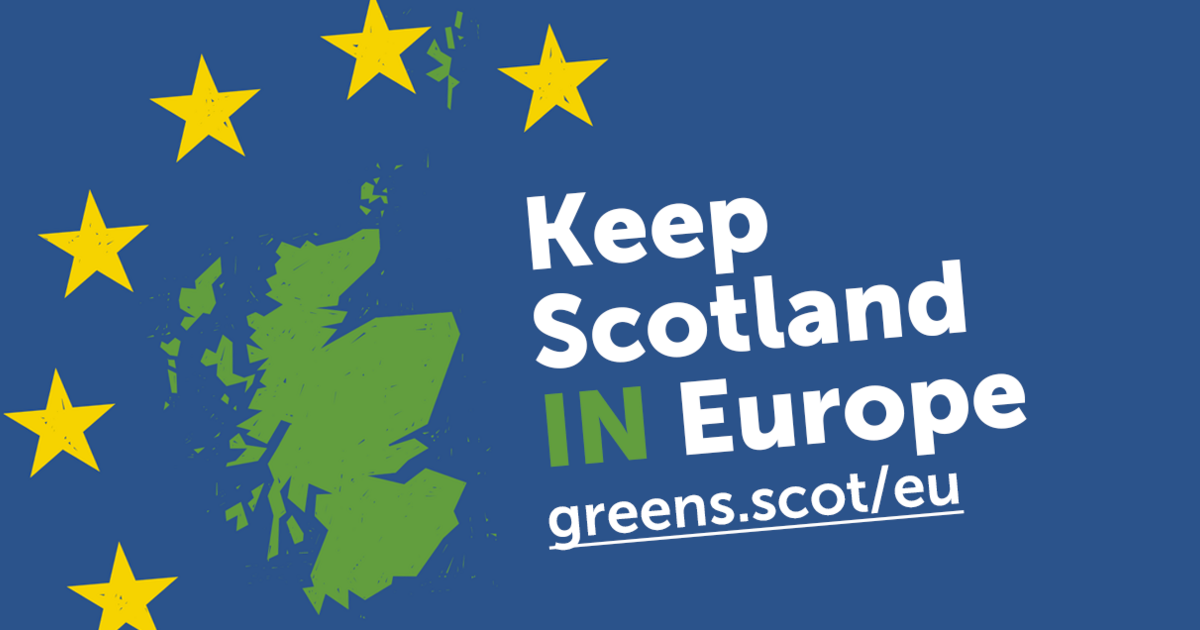Ross Greer: Independence is closer now than in 2014 but we need to get going

Scotland’s in a tricky situation and like most, it’s not one we chose. Two years ago we were promised by Better Together that voting No was the only way to secure our place in the EU and that Scotland would be treated as an equal partner in the UK’s ‘family of nations’. We now know both of those promises to be false - though just under half of voters thought as much back then too.
Now we are faced with a hard-right Tory government intent on dragging Scotland through an extreme Brexit process and into the bitter, inward-looking Britain they’ve been working towards. The Supreme Court has ruled that there is no requirement for the Scottish Parliament to be consulted, despite acknowledging that Brexit will impact on our devolved powers. To be clear, this isn’t the Court’s fault. They have made a judgement based on existing law.
Their ruling had a clear message - Scotland is not an equal partner in the UK. Promises from the No campaign formed the basis of the Scotland Act 2016. This should have meant that Holyrood’s consent was required whenever Westminster wanted to affect a devolved power. Yet the Tories who drafted the Scotland Act made this provision deliberately weak, a tactic that we now know has been successful.
Westminster will interpret this Supreme Court ruling as giving them a mandate to override the Scottish Parliament at will, with no legal consequences. The democratic deficit is now written into law.
The Prime Minister’s false promises of taking a ‘whole UK approach’ to Brexit was exposed when she outlined a hard Brexit plan which is completely incompatible with the compromises the Scottish Government has proposed and before she had even received the Welsh Government’s paper, which was co-authored with Plaid Cymru. She probably guessed correctly early on that neither the Scottish Parliament nor Welsh Assembly would sign up to her vision for a tax-haven, isolationist UK.
My committee has just returned from Brussels and the feelings for Scotland there couldn’t be more different from Westminster’s arrogance and contempt. In speaking to senior MEPs from across the political spectrum we found a real willingness to make things work for us if we chose independence and a sympathy for the situation we are now in.
That’s a choice we now almost certainly have to make; between sticking with Hard Brexit Britain and putting our future in our own hands and joining the European family of nations. The compromise options in between have all but disappeared.
That referendum will have to come in 2018 if we’re to complete this process in time to escape the Brexit trap. But we shouldn’t kid ourselves that it will be easy. Both sides will be defending change and uncertainty, which will make things a lot easier than in 2014 but what we’re proposing will be difficult and complex.
There are questions from 2014 which still haven’t been answered as far as many swing voters are concerned and top of that list is the currency. Clearly a currency union is now impossible.
We can’t propose independence within the EU whilst in a currency union with a nation outside of the EU. Plans for an independent currency have been developed in one way or another by various groups and individuals. They need to come together but the SNP Scottish Government must urgently take on the task if it’s to be ready with a credible offer in time.
To underpin that currency, develop a strong economy and close a deficit, we need a reindustrialisation plan centred around green energy and manufacturing. Much of that can actually start now, so that we’re in the strongest economic position on day one. Our Scottish Greens ‘Jobs in the New Economy’ paper would be a good place to start but again, others have also been working on this and the Scottish Government needs to take it all on board and get moving.
And on a practical level we need to start stronger than we did in 2012. As Yes Scotland’s communities coordinator I can say that it took far too long for the organisation to get to a place where it was actually helping the Yes movement. And there was an unresolved tension from start to finish between those who saw its role as defending the SNP’s White Paper and those (including myself) who believed Yes Scotland should have been the umbrella organisation for a diverse movement, not undermining the White Paper but acting as a support and resource base for a movement which went well beyond those signed up to ‘Scotland’s Future’.
We are now in the position where we can win our independence far sooner than we had thought after 2014 but the stakes are high and time is short. We need to get going.
This article first appeared in The National.
